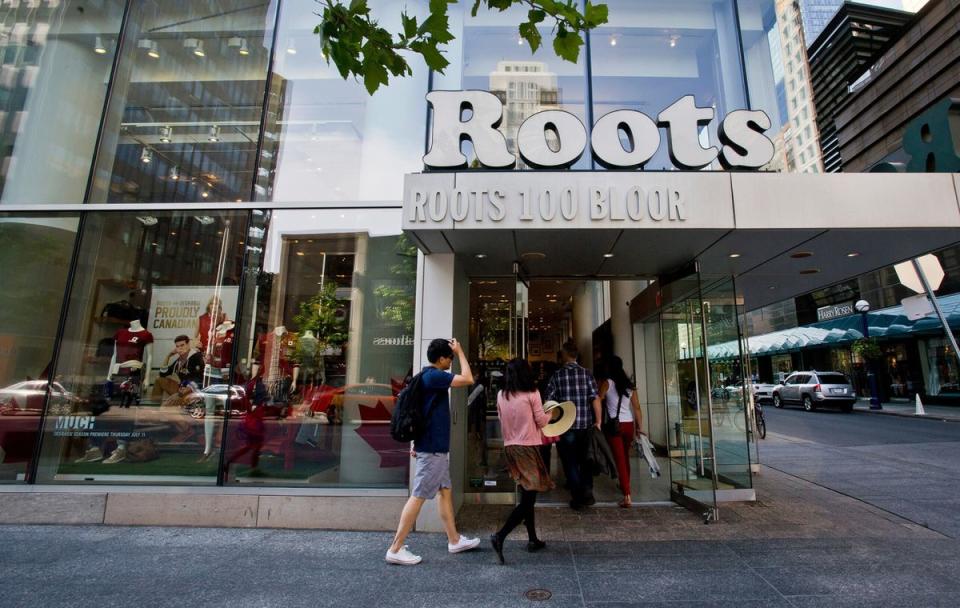'It is not distinctive:' Roots loses trademark dispute over cabin logo

It’s an image that can conjure up memories of a quiet, relaxing escape: an isolated log cabin, somewhere deep in the woods, surrounded by trees.
But should the rights to that image belong exclusively to an iconic Canadian clothing company?
Two cabin-related logos were at the heart of a trademark battle between Roots Corp. and YM Inc., a rival clothing company behind brands such as Stitches, Bluenotes, Suzy Shier and Urban Planet.
Roots had applied to strike YM’s registered trademark for a logo that featured a cabin surrounded by two trees and the words “Cabin Fever” beneath it, arguing that it was invalid for several reasons. According to a federal court document, Roots said the logo was confusing with its existing trademarks, that the YM Inc. trademark was not distinctive, and that the mark was only being used on some of the goods listed in the application. YM disputed all of Roots’ arguments.

Roots’ cabin trademark was first filed in 2014 and used on the wrapper for its socks, before later being used for the company’s “Cabin Collection” clothing line. The main image featured a cabin surrounded by trees.
In the end, Federal Court Justice George R. Locke dismissed Roots’ application to strike YM’s trademark registration, concluding that the rival’s mark “was not confusing” with any of the Roots’ cabin-related trademarks, despite some similarities in the trademark and products sold by both companies.
After applying a legal test for confusion – to determine whether the trademarked items could be confused for each other – Locke found that the degree of resemblance between the two logos was low.
“The cabin image itself used in YM’s Cabin Fever Design Mark is not particularly similar to either of the cabin images used by Roots,” Locke wrote in his January 8 decision, adding that using an image of a cabin was “no more distinctive” than using the word cabin.
“The word ‘cabin’ suggests a small house in the woods, and trees are inherent in such an environment. It is not distinctive to incorporate trees in an image of a cabin.”
However, Locke did find validity in Roots’ argument that the trademark was applied for a broad range of goods, when it had only been applied to some of the items listed on the registration.
Roots argued that YM’s trademark registration should be void due to the “false declaration” of the application. But Locke decided that the registration would not be tossed and instead corrected. YM’s cabin trademark will now not apply to dress and business clothing, footwear rings, earrings, necklaces, bracelets, belts, handbags, and sunglasses – items that never bore the company’s cabin logo.
Download the Yahoo Finance app, available for Apple and Android.


